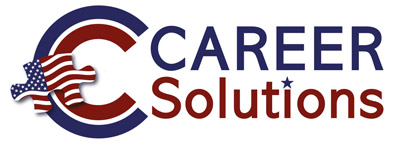As a veteran Career Strategist for more than 25 years, I’ve seen multiple debates and advice on whether or not to use a cover letter.
I’ve read advice saying, “The cover letter is dead. Just write a brief email or e-note.”
But someone else says, “The resume ALWAYS needs an introduction letter.”
Then another states, “Never submit a cover letter because no one will ever read it.”
Another advisor says, “With most applications being submitted online, there is often no space for a cover letter. Focus on your resume.”
And earlier in my career, I was told, “If the cover letter isn’t addressed to a human, toss it in the garbage.”
It can be like banging your head on a wall!
There’s a lot of advice out there and it might be good advice in particular situations, but who should you listen to?
My Cover Letter Advice: Do what the Job Announcement says to do!
Read the job announcement thoroughly. Follow the instructions precisely and submit the documents listed on the job announcement. If the job announcement states not to submit anything other than what is stated, don’t submit anything else, including a cover letter.
However, if the job announcement states a cover letter is optional, my advice is to take advantage of the opportunity!
A cover letter can be another way to convey your value when it is written as a career marketing document that can speak to the Six Audiences™ who read and score your application materials.
That said, if your cover letter doesn’t add any value to your application, it could actually decrease your chances at landing the interview. So, make your cover letter compelling! Make it conversational. Research who will potentially see and read your cover letter. It should introduce the reader to your resume and include key highlights that align with the job announcement.
What if there isn’t a Job Announcement?
One of the most asked questions I get is: “How can I customize a cover letter to the hiring manager when there isn’t a name on the job announcement?”
Even after doing extensive research on LinkedIn, Google, and other methods, sometimes it’s just not possible to find out who the hiring manager is. But, you need to avoid one of the biggest mistakes made on the cover letter by addressing it as follows:
Dear Hiring Manager:
Or, is it a mistake?
In my opinion, if the job announcement doesn’t have a name on it, the hiring team shouldn’t be upset if the letter is addressed:
Dear Hiring Team:
Or
Dear Hiring Manager:
Right?
Some federal and private sector job announcements don’t list the name of the hiring manager or a Human Resources contact. Sometimes, the job announcement only lists an address, a generic email address, or an 800 number for support.
With that said, I NEVER recommend addressing the cover letter in this manner:
To Whom It May Concern:
To me, that concerns no one and you are not going to make a great first impression.
But, don’t let not knowing the name of a contact stop you from submitting your cover letter.
What should you do if you don’t have a job announcement?
You could be submitting your resume for perhaps an informational interview or as an introduction. In that case, I highly recommend writing and submitting a cover letter, which is also known as an introduction letter.
MAGNETIC TIP: Keep your cover letter brief and make it about the employer, not you.
You will make an awesome first impression if you focus on how you can solve problems, how you’ve solved similar problems in previous positions, or how you can improve a process, improve morale, increase revenue, or save money!

Here are a few things NOT to write in your cover letter:
- The first sentence: “I am writing to apply for the position of XX with your organization.”
Of course you are. Why else would you be writing? Don’t waste precious real estate in the cover letter stating the obvious. Instead, write an opening paragraph such as: “I was excited to see the job announcement for XX because I’ve been working hard to achieve this position. Please accept this letter and attached resume as an initial introduction to what I can do for your organization.”
- Trite phrases such as “I’m such an ideal candidate for this job,” “I’m detail-oriented…I’m a team player…I’m a people person…I’m hard-working, etc.”
Yes, you are hardworking and so might everyone else be by self-acclamation. Did you notice “I, I, I?” Too many make the focus on you. Instead, make it about them. How does your experience align with the qualifications posted in the job announcement? Instead, write a short antidote about how you pitched in and accomplished something great, or improved client engagement by 75%.
Perhaps something such as: “Your job announcement states you are seeking someone who can improve processes. I am a process improvement leader. My experience in reverse engineering processes, identifying risks, and mitigating risks naturally simplifies and improves complex unproductive and outdated processes.
- Irrelevant information such as names or companies from constant generic repurposing or simply a lack of proofreading.
If your name is Jeff, how would you feel when handed an envelope addressed to John? Would you open it, or would you throw it in the garbage? Is that the reaction you want Jeff to have when he sees your cover letter? What reaction DO you want the hiring officials to have?
One of the best cover letters I have ever read…
…was written by a person seeking a job as a copywriter. It got her an immediate reply and, ultimately, an interview, and then she landed the job. The cover letter didn’t start off with the usual greeting or statement of the obvious, “I am writing to apply for the position of_____.” It opened with a simple sentence.
“I love words…I love how they roll off my tongue and
pour out of my imagination and into my fingers.”
She wasn’t a copywriter by trade. Rather, she was a résumé writer and knew her cover letter was going to have to be compelling to help the reader connect the dots between her experience and who they were looking for to fill the position.
Instead of writing, “although I don’t have any experience in copywriting,” she explained how resumes are really marketing documents that tell stories with a beginning, many challenges, and even happy, productive, and profitable endings. She had written hundreds of those stories with creativity, innovation, and attention to detail.
Do you see how she worked in some key words without being obvious?
This woman connected the dots for the employer. She didn’t say, “I’m an ideal candidate.” Instead she wrote:
“A good résumé writer must translate the facts of a routine job into technicolor nuggets of ‘ah ha!’ marketing copy to get that person an interview. It takes imagination, creativity, and the ability to write personal stories that engage readers in what can be for the hiring manager—the most tortuous part of their job. Yet, I did it, successfully for 20 years, and I still have people asking me to write for them.”
Do you see where she added in a sense of urgency? Better catch me quick because people are looking for someone like me!
This kind of cover letter doesn’t play well as a boring template. But if you’re really committed to a successful job search, you can’t let yourself become complacent and churn out the identical generic résumés and cover letters over and over.
You only have three to six seconds.
Don’t forget, you only have three to six seconds to capture the attention of the reader. You can do this! And, if you want help, just message us via email or on social media.
Please leave us a comment and tell us your thoughts. We’d love to hear from you.
For bite-sized, valuable content, please like and follow us on social media:



